Landscape Architect career vs Landscape Design
I am looking for advice from those who currently work as landscape designers or architects. I am looking to make a career change and have finally realized that my calling is plants, gardens, the environment and design. I have been doing a lot of research regarding education and job opportunities in the green industry. I realize that it's a safe bet to get a 4 year degree in landscape architecture from an accredited university, from a job security point of view. From there I've learned you can likely get a good entry level landscape architect job with an established firm.
However, I've researched a lot of local firms from the ASLA website and they all cater to large civil and corporate projects. I'm really passionate about working on residential projects- I like the idea of smaller spaces, working with homeowners and developing a close relationship with one client at a time, rather than large corporate projects where things are more impersonal. It seems like the title I'm more interested in is Landscape Designer- and it seems like LD's only need a 2 year degree.
My question to any landscape architects (and designers) out there would be this: can you work for a larger firm and still do intimate projects? Or do I have to become a "design and build" operation to do what I truly love? Is a Landscape Architecture degree exactly what I need to cover all my bases, or should I get an Ornamental Horticulture degree instead? And what exactly do you all do (specifically in the northwest) during the winter months to keep the money coming in? Thank you all so much in advance for your advice!!!
Comments (29)
laag
17 years agolast modified: 9 years agoIf you want to make a living as a designer, you need to not only learn about design. You need to learn about the design business and project management. You won't get all of that with a horticulture degree, design school certificate, and without working for people well established in the business. There is no doubt in my mind that you would do best to get the degree in landscape architecture and intern at a landscape architecture firm for a couple of years.
While it is true that most prominant LA firms are working large scale projects, there may be more smaller firms (often one person) that work almost exclusively residential. However, I would not worry about who works in what category in higher numbers and focus on what will make you successful and what will leave you struggling. Preparation is what will empower you.
Preparation for what? Some would argue that being good with plants and having a knack for arranging them is enough. Well, a lot of people are looking for more than a garden designer and the field of qualified garden designers is quite large. That would put you as an equaly qualified person amongst a great deal of other equally qualified people looking for the same work if you prepare in the same way they do.
An LA degree and internship will do more to make you more competitive because you will have more planning and design skills than that of garden design. You will have worked within an office and seen how they market, how they get work, how they bill, what they do to be productive, you will most likely get out in the field and see what project management is, you will make contact with architects and engineers who you may be able to work with later, .... and you will instantly be working on projects a rookie could never get. When it comes time for you to go out on your own, you can continue to work at or near the level that the company you worked for was at - I call that moving latterally.
The alternative is to start out looking for your first design job with no portfolio, no experience, and no way to get the job built. No one cares about your degree (whether it is hort, LA, or Miss Minch's finishing school). You have to have some perceived value in order for someone to give you the job over the next designer.
I work as a small LA office doing mostly residential landscape. I also hold a job as a site planner in an engineers office ( a job that is pretty hard to throw away). All of the opportunity came because I got a degree in LA. I have very clean well shaped finger nails and get landscape design jobs before the first tree on the lot is cut in many cases. I work year 'round in both cases and worked year 'round when I was a designer (LA) for a couple of years with a landscape contractor.
If you look around, you'll see that a lot of designers wind up stuck getting only jobs that they can build. If their ability to build is limited, their design projects tend to get limited to that ability. I got my degree at 35, after going through the other way. It is much easier, much more steady, and the projects are much better. I wish I got my degree at 24.
It is a long time commitment, but you will quickly pass where you would have been after those six or seven years.
gardengal48 (PNW Z8/9)
17 years agolast modified: 9 years agoI'm going to offer a slightly different perspective.
Much of what laag has stated has a great deal of validity. Regardless of educational training (4 year LA degree or 2 year OH/LD degree), you will not gather everything you need from school and experience, whether gained via a working relationship with an established design firm or on your own, will determine the success of your own design enterprise. Obviously, gathering the experience you need to become a successful landscape designer under your own steam presents a longer and more complicated road to travel. But it is doable.
There are about as many ways to approach this process as there are designers (and I am including LA's in this broad title) and what may work well for one individual may not be the best method for another. Locality plays a role in this as well.
The Northwest is a very active gardening area with a large number of designers of all descriptions and methods of conducting business and also a great deal of demand for their services. There are also a good many educational opportunities, from 4 year LA programs to many 2 year horticultural and design programs. There also tends to be less emphasis or reliance on LA's to address residential design needs.
So the critical element, once you have the degree in hand, is how you achieve the experience necessary to set up shop on your own, if that is how you wish to proceed. And how you intend to structure your business.
One of the issues you will need to clarify is the income potential you see for yourself. If you intend to live on your earnings from this profession, then that will have a huge influence on how your structure your business and how broad the services will be that you offer. Unless you have a national reputation and distinct cachet, it is very difficult (if not impossible) to earn enough from just design services alone to live on. This is where working with an established firm as a salaried employee offers benefits. Or establishing your own design/build company - the income potential is rarely in the design services but rather in the implementation and installation of the design.
Having said all of this, there are a great many designers in this area (PNW) that offer ONLY design services. Most have other sources of income (spouse with regular job, a second, often related income, etc) or they have a cooperative relationship with one or more landscape contractors that provide them a ready source of referrals/projects.
How you choose to accomplish your goal and what you opt for as a working title (LA versus LD) is far less important than how you structure your business and the services you will be providing. And everything that laag has stated applies in either case.
FWIW, my path as a professional landscape designer was much different from that of laag's. I have a 5 year architectural degree, an interim business career that was totally unrelated and a subsequent 2 year OH degree. I offer design-only services, have a steady source of referrals, a working relationship with several contractors and have design jobs going year round. I also have a supplemental income source that provides a steady paycheck and benefits, otherwise I'd never make ends meet. It's pretty dang hard to turn over enough design-only jobs, even under the best of conditions, to make it on income from this source alone.
Related Professionals
Windham Landscape Architects & Landscape Designers · Pelham Landscape Contractors · Salem Landscape Contractors · Barrington Landscape Contractors · Brooklyn Park Landscape Contractors · River Ridge Landscape Contractors · West Orange Landscape Contractors · Kingsburg Landscape Contractors · Auburn Decks, Patios & Outdoor Enclosures · Bonney Lake Decks, Patios & Outdoor Enclosures · Gladstone Decks, Patios & Outdoor Enclosures · Green Bay Decks, Patios & Outdoor Enclosures · Palmetto Decks, Patios & Outdoor Enclosures · Rockwall Swimming Pool Builders · Thousand Oaks Swimming Pool Builderslaag
17 years agolast modified: 9 years agoAll good and valid points. Certainly a viable way to be a designer.
I think the biggest benefit from the LA route is being able to much more easily get a job with people already successfully doing what you want to do. Then it is a much easier move to step off the elevator already at the floor that you want to be on rather than taking the stairs with a whole lot of other people trying to get there before you.
The LA degree gets you into the door as an intern in a professional design office right away because you are trained to do the leg work in such an office. The hort degree gets you into a nursery or greenhouse, it won't get you into a professional design firm because the skill set is not the same skill set needed in a design office. When the elevator doors open, you still have to take the stairs. It does not mean you won't get there.
It really depends on what you want to do. Don't work on an LA degree if you want to just do planting plans. It is overkill. But, if you want to do planting plans for people who are going to have pools, stonework, altered landform, structures, and who need to go before regulatory boards, you have to know that they won't hire one company to do all of the rest and then come looking for you to do the planting plan. You'll need the other capabilities that you'll get through the LA route in order to land those jobs. There are far less people capable of handling all of those things which makes it much easier to get the work and get paid very well doing it.
aspire2grow
Original Author17 years agolast modified: 9 years ago*LOL* I am so loving that you guys both replied to my post, I'm actually a fan of both of you! I think I've read every piece of advice you've offered on this forum!!! Thank you so much for taking the time to give me all this feedback, I can't tell you how much I value it.
I have a lot to think about but you've helped me realize I have about 2 years to make the final decision- I'm going to try and start w/ an 2 year LD degree and then see if I can transfer those credits to an accredited 4 year program for LA. I guess my next step is to talk to the college counselors in the area and see if this is a possibility. I have more research to do!
I think what I enjoy about both of your posts is that this is not your original career path- I'm at that crossroads now where I'm totally disillusioned with the industry that I have my original degree in- my values are just totally different now. I didn't research my first career very well since I was young and waaaaayyy too optimistic. I'm just happy that I've figured out what I want to do and found a career that I can honestly love, that fufills all my core values- creativity, integrity, environmentalism, not being a total corporate drone, etc. Thankfully I guess I do have the life experience to not look at this career just with rose colored glasses or jump right in without learning more about it.
Anyway, thank you both again, I will keep you updated.
laag
17 years agolast modified: 9 years agoI'm a big fan of Gardengal as well. She knows her stuff and knows this business very well. We tend to work different angles of the market with a slightly different philosophy, so between the two of us you will get good explainations with some diversity of thought which is always good. Hopefully, you will get some other perspectives as well.
If you do start with a 2 year degree, be careful to look at the LA curriculums (they don't teach spelling, but you read a lot of my posts and know that all too well)because there is usually three years of design studio. You may find that you'll need three more years even if the two years of credits transfer. You should know that ahead in case it is too long a commitment. Watch the succession of prerequisites as well. It is quite common now for BLA degrees to run 5 years and quite common for them to take 5 years in a four year program anyway. I did mine in 5 with a 12 year break between my sophomore an junior year.
My advice would to either commit to the BLA right away or to follow another path. It is much to specialized to transfer into past the sophomore year. I had a rough time when I transfered in as a sophomore because the others were all ahead of me because of art classes of all things. They were all speaking a language that I did not know. My experience was in landscaping not art and graphics which are the first skills you need to work your way through projects that develop the other skills as you go through school.
If time commitment is difficult, remember that you will most likely need to intern for two years after the degree in order to get licensed depending on your state. Although the internship is a paid job and a huge factor in your future success. It is the most rapid way to elevate your position in the market. Elevating your position in the market is the #1 most difficult thing to achieve in the design business. Most designers do not advance much further in the market that where they start from. Depending on your internship, your starting point can be very much higher than most designers. I do not know of another sure fire way to advance that comes close to this and very few LAs are going to hire an intern without an accredited LA degree (I had to deal with Harvard grads who would not consider non-Ivy league degrees here in MA).
gonativegal
17 years agolast modified: 9 years agoDear Aspire,
I agree with all of the above comments. Actually, I would just add to mix by saying why don't you tack on an extra internship as a "grunt." I think it's important to actually spend at least part of a season doing the actual installation of a proposed design, maybe some maintenance as well.
I find sometimes that there's a disconnect between the designers and the crew that installs and maintains the job.
I'm not saying make a career out of it but it's important to really understand how it comes together from the design board all the way to the actual hands on experience of installing the shrubs or the pavers. You should, for example, understand how to prune the groundcover you're proposing.
marcinde
17 years agolast modified: 9 years agoI'd get the LA if I had it to do over again. I have no degree- everything I do (and I do it all- my first detached garage goes to county for review next month!) I learned on the job or through hours of research. Getting to where I am today took a huge amount of work and salesmanship and not just a couple of lucky breaks. I agree with laag on this one.
Dave
Brent_In_NoVA
17 years agolast modified: 9 years agoI wonder if there is a way for you to get some exposure to the day-to-day tasks of a designer before investing another 4 years only to find out that you have chosen another career path that you don't like. I imagine that being a landscape designer can be an enjoyable job, but I also suspect that it can be a lot of work. Some of that may depend on how dependant you are on the income and benefits.
I have a few friends that are involved with (or were involved with) running small companies. It is not something that I would want to do. My take is that 90% of the skills required to run a successful small business are the same no matter what business you are running.
- Brent
aspire2grow
Original Author17 years agolast modified: 9 years agoThanks all for your feedback. I'm starting become convinced that I should go for the BLA- In my current job, I managed to find moderate success with only a 2 year degree, but a lot of that had to do with dumb luck and doing things the hard way. I don't think I want to take that risk twice!
Also I totally hear you all when you suggest getting exposure, doing internships, doing some grunt work. I'm all about getting my hands dirty and finding out sooner than later if I can't handle this line of work. I guess the next thing on my to do list is seek some kind of job or internship in this field. I'll let you all know how it goes!!
bindersbee
17 years agolast modified: 9 years agoI'll chime in too. I have a BLA from Utah State University. The program is extensive and difficult and was certainly worth it to me. I will probably never be an actual LA though since the requirements to sit for the exam have changed. You need to have 2 years of experience working under another LA doing actual LA work in order to sit for the exam. Since I graduated in the pre-auto cad era, I'm pretty much unemployable in a regular LA firm. I've only got 1 year of experience under an LA and no desire to go learn auto cad so I can be a glorified technician for a big firm when I'm already doing the work I want to do (residential and small commercial) for a design build firm.
One of the critical factors for you to consider in making your decision is the law in your area. In my state, there is a title law but not a practice law. That means I cannot call myself a Landscape Architect because I'm not- unless I pass the LARE and qualify under the title law. HOWEVER, there is no practice law which means I can do pretty much all the same work. I've done the math and in my case, getting my LA title will cost me in terms of additional money etc. but not provide a return on the investment since my residential clients are perfectly happy with the fact I have a degree and training but am not an LA. In fact, very few of them have ever asked or cared that I have the degree at all. They are far more interested in the fact that I got some unique hands-on training through some well-known names in various pieces of the industry.
If you truly want to work on the residential scale, a degree may (or may not)be overkill. I mean, a degree is always valuable but there are a lot of guys I graduated with who never worked in the field. The abilty to present yourself well, sales experience, and business acumen are (sadly) often more important to success than skill. Heck, the money is all in landscape contracting anyway so you might want to find out what's required to do that and go that route- I know it's also difficult to get that license but a designer with no ability to install their own designs will always have greater struggles getting and satisfying a client. If you can get an internship or some sort of unique hands-on experience (like an internship in England or something like that), that's probably more marketable to more people than the 4 year degree- especially in your area where there is a lot of competition. The unique experience and training become the thing that can set you apart. 6 months in England can be worth more financially in terms of attracting clients than a 4 year degree (though admittedly not as good as having both of those things).
I do work as a landscape designer now. However, I'm really fortunate that I don't have to make a living doing it. My husband has a good income and supports our family and my earnings are gravy. I think that's probably why I'm loving it so much, it's just part time and I don't have the stress of having to make bills with the income. Today I get to go out and spend thousands of dollars on plants for a client. Woo hoo! I'm getting paid to spend someone else's money to do what I love. It's a great way to spend my time.
mdvaden_of_oregon
17 years agolast modified: 9 years agoThe title - for you - is not too relevant. You can get an LA degree and still call yourself a landscape designer.
As for work potential in a full-time position, for a full work schedule, seems realistic from the angle of working for a landscape architect.
Regarding the "potential" for residential work and income, the small to mid-size landscape contractors will probably be very apt to hire a "landscape designer". There are scores of legitimate, well-trained landscape contractors, who don't offer landscape plans - preferring to refer, or subcontract the blueprint end.
Landscape design, as a niche, may tend to seem more seasonal than landscape architecture in the intitial stages.
For fun, you might enjoy going to the websites of two associations, to view the directories and visit websites of landscape designers. See how they present themselves. Each one is a little bit different...
Hope that helps.
laag
17 years agolast modified: 9 years agoAll good and accurate information.
Bindersbee is part of a large group of people who have LA degrees. You don't need the license to be successful. Even states with "practice acts" don't stop unlicensed people from doing landscape design. Most practice acts grant LAs the ability to do some things that are otherwise limited to building architects and/or civil engineers (designing structures and/or layout and drainage of roads) rather than to cut others out of the business of landscape design.
I think that all of Bindersbee's points are really on target and are reflective of the main stream of professional landscape design. Most of it is design/build generated. Most designers have a hard time making it on design alone. The typical consumer does not know or care about your schooling, professional organizations, degrees, or licenses. They want to know what you are associated with by either reputation, portfolio, prior reference, or by the names of people or projects you worked on.
The only bone that I would pick with Bindersbee, is that she does not seem to be saying that the process of earning the degree is what will give you the skills to be competitive in the industry regardless of whether you get licensed or if anyone even knows you have the degree. I think it is easy for us to get hung up on what a degree or title does for opening opportunities and we forget that we actually got skills and abilities through that process that make us good at what we do.
When I go to someones house they don't want my resume or to look at my rubber stamp. They want to hear my ideas and see how I react to theirs. They'd dump me for sommeone with no degree and no titles, if that person is demonstrating a better match for their needs. But, the fact is that you do actually learn things through the process of getting the degree which is why you will usually not be out matched in that situation. If you quit school three credits short of your diploma, you'll probably be just as capable in the landscape design world as if you had the degree.
IT AIN'T THE PAPER, IT IS THE EDUCATION! Bindersbee has the education. The stamp matters little unless she wants those jobs that tend to go toward licensed people. But the education is what got her there.
jakkom
17 years agolast modified: 9 years agoUS News & World Report did a recent article on "Overrated Jobs" and in the article was their evaluation for best job prospects for 2007. They did mention landscape architect so I thought you might find their take on it interesting. I have no idea whether it is a good summary or not, I was just saving articles for a friend whose daughter is starting college so this was one of them.
Here is a link that might be useful: US News & World Report: landscape architect summary
bindersbee
17 years agolast modified: 9 years agoI read the article- interesting. I guess I've held two jobs in the top 25 jobs for 2007 since I spent most of my professional career time (before becoming a Mom) as an Urban Planner.
I think the article gets it right that the work is complex and interesting- certainly if I were licenced I would be doing more of the complex stuff- I'm mostly a 'make rich people's backyards look great' type. However, there are not tons of jobs in these fields, though they are growing. When I think of the 'top jobs' I always think that lots of opportunity to work in the field is part of what goes into the rankings- that doesn't really apply as much to LAs. Heck, I had to beat out 78 other applicants for my first Urban Planning position- though the market is not that tight here now. Landing an entry level LA position can also be difficult but the more savvy you are about politics and networking the easier it is. There's a lot of politics in the larger scale LA work because of the need for approvals from regulating bodies and all the red tape that creates. Having a knack for navigating red tape is not something you'll learn in any LA program but the ability to do it well makes the firm more profitable (less time spent fixing redlines).
Oh- and Laag, you needn't pick a bone with me- I conceed your point. I work for a very talented man whose training is more along the lines of practical 'in the trenches' experience along with some local training from a non-landscape architect. He does good work however he is the first to admit that his design plans lack a certain polish that is very evident in my work. The difference is not talent (he's probably got more natural talent than I) but training. I'm helping him understand how to get the polish and he's helping me learn the more practical aspects of implementation that I need. It's a good exchange for the both of us.
laag
17 years agolast modified: 9 years agoOne point that the article's writer tries to make is that being an avid environmentalist helps because of the red tape. I think the author makes an assumption that having a personal environmental agenda is beneficial for moving your career forward. The fact is that the work is in working for developers not GreenPeace. Environmental knowledge and a clear understanding of environmental laws is going to advance your career. Having a personal environmental agenda will put you at odds with the people who would be likely to hire you - developers.
I'm not saying you can't have leanings toward protecting the environment. I think pretty much all of us do. I am saying that the way the work comes into contact with environmental laws is essentially to find the most cost effective and practical ways to comply with the laws from the developers perspective. You won't have a job for very long if you try to add on more expense and more protections to the environment than what the regulatory bodies are going to insist on. Quite honestly, the better you are at strategising and convincing regulatory bodies that that less meets the criteria for approval, the more in demand you become. The more you roll over to the boards, the more of a burden you become to the people who hire you (then they don't hire you).
You can't positively effect the environment, if you are kept on the sidelines. You can definitely improve the environmental qualities of a project while being an advocate of the developer. Once you cease being an advocate for the developer, he's going to fire you and hire someone else. You can only push it so far.
The article appears to be written with research done by talking to university professors, ASLA, and other people involved in promoting the profession. That is all the standard literature and academic talking points. Google any landscape architecture department at a university, and I think you will find very similar descriptions.
bindersbee
17 years agolast modified: 9 years agoSo true Laag. I've always been politically involved since I was in speech and debate through high school and college. The thing that advanced my career more than anything else is my ability to think quickly on my feet and give a solid presentation. We all get into the field because of our love for design but you only get to build your design if you are selected- which has everything to do with selling the job.
So, to the OP, if you want to get a jump on everyone else you graduate with, make sure to take some marketing and speech classes. Join toastmasters if need be (they are a non-profit lunch group whose purpose is to help members become better public speakers). The most contraversial project I ever worked on was a public park in a wealthy area of town. They were afraid if the park was redeveloped with a trailhead for horses, it would bring 'those people' into their neighborhood. Imagine adults fighting like kids over horse poop vs. dog poop and which was more obtrusive. Seriously, there were people who claimed that certain neighbors had been out trying to intimidate other neighbors over it, threats of lawsuits, etc. I was seriously worried someone would have to hit the panic button and get the cops upstairs to handle the crowd who was starting to get really out of hand. I had to keep my cool and try to give unbiased information even though I had a strong opinion. In the REAL work of Landscape Architects and Planners- this is what sometimes occurs.
Perhaps the best thing for you to do now is to find out if you can 'shadow' a Landscape Architect for a day? Maybe you could spend the day at a firm and see what the REAL work entails. If possible, I'd recommend that you do this with not only LA firms but a local city who has an LA on staff, a landscape design/build firm, and a Landscape Designer. Your goal is to see what each does so you can better evaluate which direction to go with your career BEFORE making an educational commitment. Most people are happy to share their knowledge and the upside is that you begin making contacts within the industry so that when you are properly trained and seeking and internship or job, you have people you already 'know' that you can go to. That's how I beat out the other 78 applicants for my first job. I had been courting that municipality for 18 months before the job opening came around. They only interviewed me to 'throw me a bone' because I'd been so diligent and I impressed them enough to get the job.
Brent_In_NoVA
17 years agolast modified: 9 years agoI took a look at the linked article. I was a little shocked at the relatively low wages for design related jobs. If you sort the list of "best careers" by median pay, you get the following as the lowest paid (ignoring Politician):
$38,465 - Urban/Regional Planner - Masters
$46,840 - Architect - Bachelors + 1 year
$49,708 - Librarian - Masters
$49,974 - Landscape Architect - BachelorsAlso, I have to admit that I must be ignorant to the real job of a Librarian because I had no clue that such a job would typically require a Masters degree.
- Brent
irene_dsc
17 years agolast modified: 9 years agoLol - no surprise to me on the salaries being low! (Going by your numbers - too impatient to load the salary page.) I'm assuming that's median overall, not entry level, since I *know* entry level architectural interns are not median that high.
Btw, for librarians, that's I think for the research /reference librarians, not the person checking out your books. ;) And I don't think there is a bachelor's degree in library science, just a masters (tho of course I could be wrong.) And here's irony for you - I have a friend who has a double masters - library science and music. The MLS was supposed to be her safety net, but what is she doing? Teaching private music lessons!
kraut
16 years agolast modified: 9 years agoOkay, I'm picking up this thread six months late. But I found this very interesting. It answered some of my questions after googling something like "gardening/horticulture versus landscape architecture" and ending up reading about the differences between LA and LD.
Similarly to the first poster, I'm exploring the possibility of entering the world of landscape architecture. But all I have to go on at this point is a hunch, the sense that I might feel at home in this field. Right now, I'm working as a geologist and have been for the past 10 years. So I have a resume of working with contractors, construction crews, construction quality control, working outdoors etc. It sounds like that might be somewhat valuable experience on the "building" side of things. What I miss about my line of work right now is the creative aspect. I have always been interested in the arts and am realizing that actually producing or designing something beautiful would satisfy an urge my current job does not. I have been doing a lot of landscaping and gardening at home for the past 2 years, and have found this very fulfilling. I have enjoyed combining the "technical" building side of things with that of choosing plants and trying to achieve a certain effect or look. I mean - that sounds like LA to me, right ? So I have begun researching this field. Sorry if this all sounds a bit naive. Like I said, it's just a hunch.
I had productive talk with a professor for landscape architecture at the University of Texas at Arlington (my neck of the woods) a while back, and the curriculum for their program sounded very interesting and comprehensive. But thinking about a 3-year program when I'm in my 30s makes me want to be certain before acting on a hunch. So what I'm wondering is how my background in geology and environmental engineering might contribute in LA. What could I do to get a more hands-on picture of what I might be doing as a landscape architect, besides maybe calling people in the phone and picking their brains? Might it make more sense to look for a job with a firm that employs both geologists and LAs and hope I might somehow transition into a hybrid geologist/LA before I decide to get a college degree in LA? Or is that too much of a longshot.
Any thoughts or suggestions are welcome. I know there are a lot of very knowledgeable folks around here. Thank you.
marcinde
16 years agolast modified: 9 years agoMy guess is that a company would have to be huge to have both LAs and geologists on staff, which would make me think they lean towards land use planning, site work, etc. That may not fit with your definition of creative work.
I just think it depends what you want to do, as vague as that sounds. I'm in a similar boat as you- I'm 32, currently working as a LD, and considering going to school for an architecture degree. It just depends on how far you want to go in a field, what level you want to achieve. If it makes you feel any better, I haven't figured it out either.
landart
16 years agolast modified: 9 years agoFollow what your heart desires. You should get your degree in Landscape Architecture which will teach you design of land as well as garden and plant design. Most horticultural schools only offer 1 or 2 courses in design. Remember horticulture is the science of ornamental and food producing plant propogation. Get your LA degree and do your own thing. Sherman Runions, ASLA
kraut
16 years agolast modified: 9 years agoThanks for the encouragement, Sherman. I do think getting the degree would be very exciting. But I also find it to be a huge commitment while I don't yet have a clear picture of what to do with it. Maybe you could elaborate on "do your own thing" ? I was wondering how to get some experience or inside feel for a job in LA while working full time in another field...
gardengal48 (PNW Z8/9)
16 years agolast modified: 9 years agoThe above is not precisely true :-) Horticulture is defined as the cultivation of ornamental plants, vegetables and fruit - propagation is only one aspect of that. Depending on the school you attend, soils, hydrology and plant pathology are all addressed and often in considerable detail. And not all hort schools are quite that skimpy on design courses - mine involved a two year series of courses and a final project. So 7 rather intensive quarters, as well as the equivalent in plant ID.
kraut, with your background, a slightly shorter but less technical course of study in landscape design may be entirely appropriate and get you into the business end of things a bit more rapidly. Unless you do the apprenticing and licensing exam, you won't have the LA title but I'd think your skill set would be pretty complete. I did the same after acquiring a 5 year B.Arch degree (the equivalent of a current M.Arch degree) a good number of years ago and it's provided me with a pretty diverse and even fairly technical background in design and planning as well as horticulture.
landart
16 years agolast modified: 9 years agoI believe gardengal and I are both right. Of course, subjects such as plant diseases, soils, etc are a part of horticulture. But still I stand by my definition of horticulture. Now, lets move on and help out kraut.
If you want only to design gardens that is truely noble and is appreciated. It does not mean LA is in a tower above that. In fact, there are many garden designers that enjoy regional and even national fame. One is right across the border from me in South Carolina. Bet some of you have heard that name.
kraut, if you are interested in the total picture get your landscape architectural degree. Total Picture ?? As an LA you would take a piece of earth evaluate it, form mitigation plans for any wetlands,hydrology, geology, etc,design the ground elements such as roadways, homes, common areas and design the gardens if you so wish. Frankly, many LAs don't do planting designs. I am not one of them. My partner and I love garden design (icing on the cake). Go to www.asla.org navigate through the website to get a feel for what it's all about. Call a local LA and ask to pay a visit to their office. Bet you will enjoy the visit. Let us know what happens. Sherman
kraut
16 years agolast modified: 9 years agoI guess it's time for me to go beyond a general interest in LA and decide what it is I want to do. What stirred my interest and question was the combination of outdoors work, creative work, nature, environment, and the fact that getting into LA with an engineering/geology background might easier than switching to something else "creative" that didn't involve the science/engineering side of LA.
As it turns out, I am really less interested in that part though. So maybe LA is not the degree for me or at least overkill.
I have since talked to two local industry professionals which has been another eye opener. It seems, the two work at opposite ends of the spectrum. One designs high-end backyard paradises, deals with planting and design. The other has a workload that consists mostly of landscaping the space around his company's architecture projects, and deals with irrigation issues, city codes, turf grass, and sprinkler systems. The latter doesn't sound nearly as much fun as the former. It sounds too much like engineering. The guy was great, almost a life saver, provided a wealth of information, and yet I came away thinking maybe I am peering down the wrong alley here. Maybe I shouldn't try to pursue LA but continue gardening at home.
Anyway, I got a number of leads for additional people to talk to, and I will see what they say. I could see myself working on residential projects and even for some municipal department. 99% of the cities I see are in dire need of landscaping and protecting those small and shrinking green interstices.
Maybe my green passion for nature and environment would be better spent somewhere else rather than possibly having to go to work for a company that's "landscaping" urban sprawl. I don't mean to offend anyone. I just think much of urban USA is not a nice place to live. Is LA the field for someone wanting to make a difference here, or should I look into urban planning ? Anyone ? I'm confused.
laag
16 years agolast modified: 9 years agoI think you are talking to people who have met some landscape architects and have made a stereotype of of them. It is as diverse as landscape design in general and has an expanded horizon on top of that.
There is some resentment by some people to people who have different credentials than they do sometimes. I can't tell you how many people I have heard say that LA is about hardscapes, or manipulating the ground, they don't have any plant knowledge (usually from self taught plant experts), they only do this, they do that well but not this well,....
It is a diverse field with lots of education options, lots of internship options, and lots of career options.
gardengal48 (PNW Z8/9)
16 years agolast modified: 9 years agoWhat Andrew says is perfectly true - this is a very diverse field and it shouldn't be too hard to find some position that can be an outlet for your more creative inclinations. Personally, if I were in your shoes, I'd be inclined to talk to as many more practitioners of this craft as you can because each one will likely have a slightly different practice/business orientation and educational/experience set and by questioning them, you may be more easily able to determine exactly what is the path you choose to follow.
Any design field can offer creative outlets, even those that are more engineering focused. I was fascinated with my structures courses in architectural school and had I had more time and the $$ to finance it, I might have changed my major to structural engineering. So go figure my playing with plants and landscape design now :-)) Who knows, it may have bored the pants off me in short order but it was certainly very compelling at the time.
johng_sanderson_gmail_com
13 years agolast modified: 9 years agoWell, here is the gist of my career-path-angle.
-Associate Degree in computer drafting and design @ ITT
-Hire on as part-time with landscape maintenance or what ever will get me the most plant and material used experience while going to school
-Work as Landscape Designer for 5-10 years at 35-45k a year
-Return to school for a BS Degree in Construction Management
-Move up on the ladder making about 70-80k after BS completion
I'm not planning on building sky scrapers, so I'll spend the extra time working on landscape related training instead of an immediate 4 year LA Degree.
Does that seem like a steady path to residential landscape design i.e. small businesses?


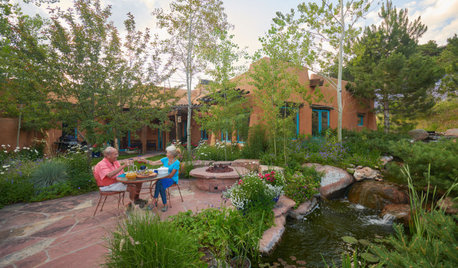
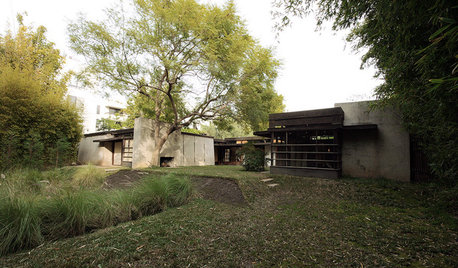
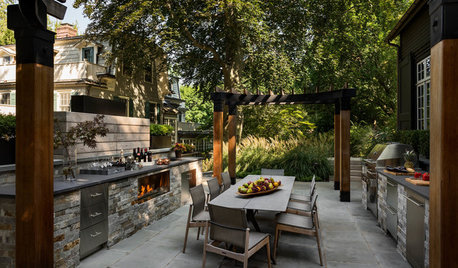
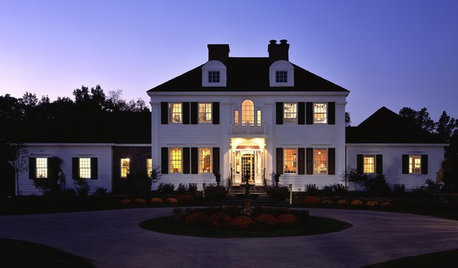

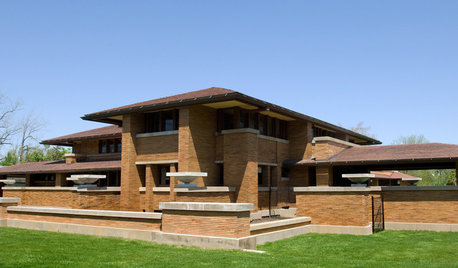
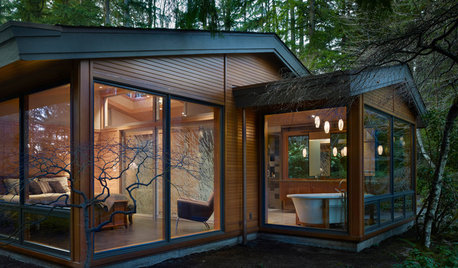
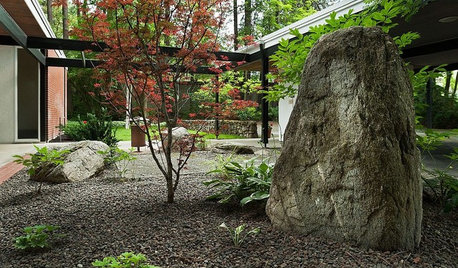










chelseapeil_gmail_com